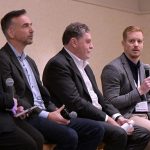Keynote speakers provide insight into change, sustainability
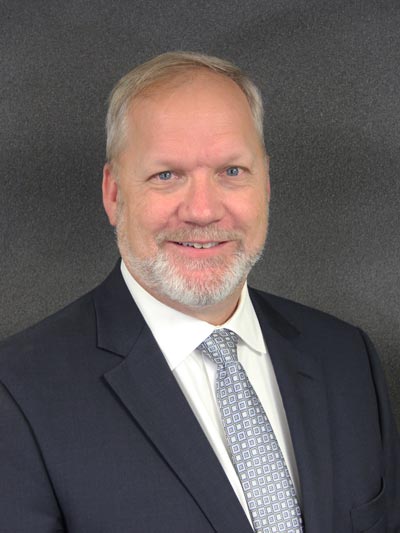
The topics of change, sustainability, collaboration, and adaptation resonated throughout the keynote speeches on Day 2 of the eChemExpo. Keynote speaker Al Onley, director of engineering at Nuclear Fuel Services, addressed a full house of attendees about embracing changes, navigating challenges, and seizing opportunities in manufacturing. “The core value of innovation is change,” said Onley, a first-time expo attendee.
Onley shared an anecdote about change at NFS, which is located in Erwin, Tennessee. The company recently changed cell phone applications to ensure the company’s computer network was protected. He said the company wiped out everything on employees’ cell phones, including photographs and emails. “What a significant change for every person in our company,” Onley said. The lingering effects of the change were still being felt.
The core value of innovation is change.
—Al Onley, Director of Engineering, Nuclear Fuel Services
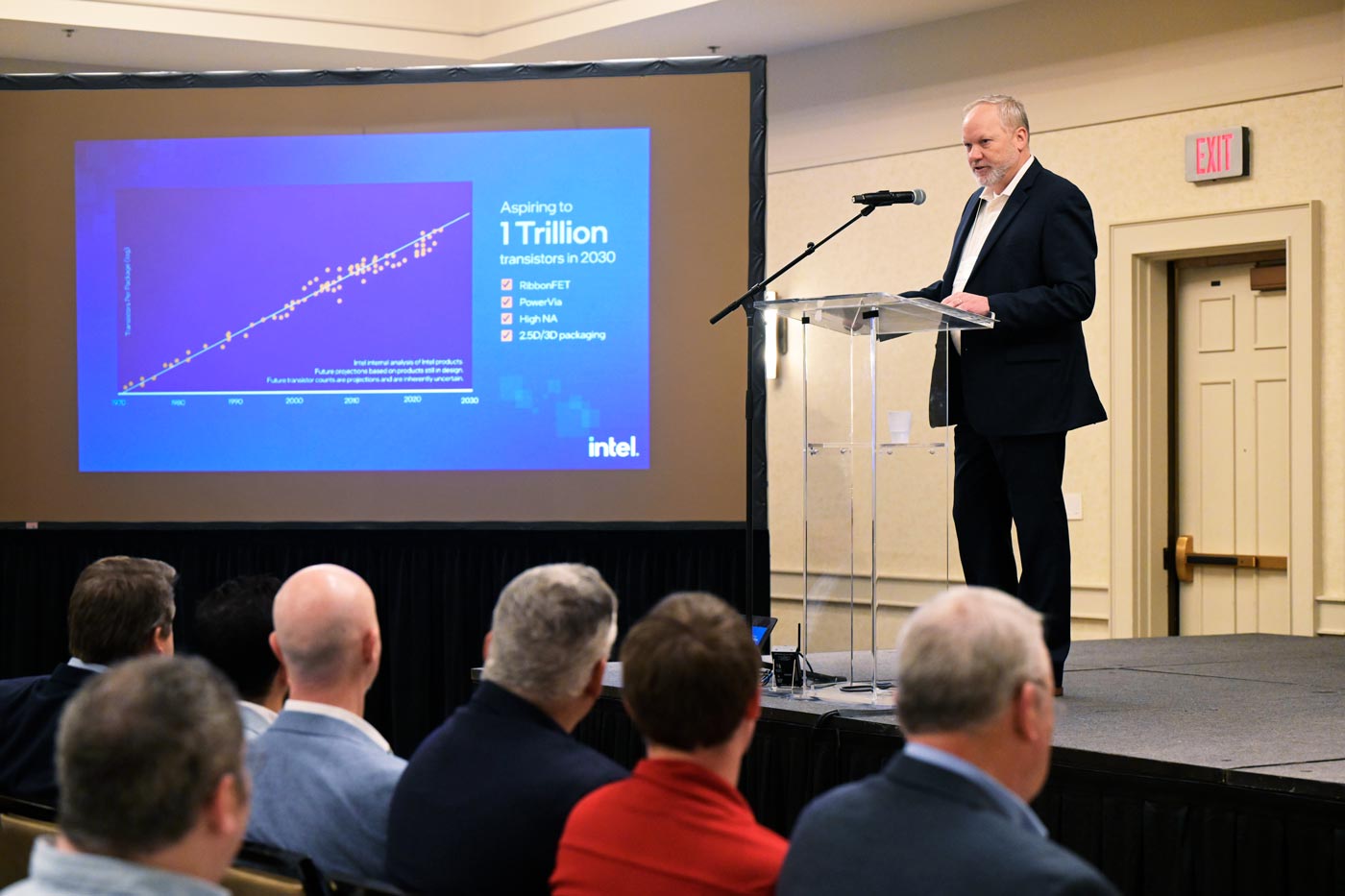
“If you feel like you’ve been experiencing a lot of change in your business over the last few years, if you answered yes, you’re not alone,” Onley said. In January, Onley said Forbes magazine reported that massive change is affecting business. Change is accelerating, he added. “Computer technology is driving change,” he said, including smartphones, cybersecurity, and artificial intelligence. “These all have a direct and uncontrollable impact on our industry,” he said.
If you feel like you’ve been experiencing a lot of change in your business over the last few years, if you answered yes, you’re not alone.
—Al Onley, Director of Engineering, Nuclear Fuel Services

If you feel like you’ve been experiencing a lot of change in your business over the last few years, if you answered yes, you’re not alone.
—Al Onley, Director of Engineering, Nuclear Fuel Services
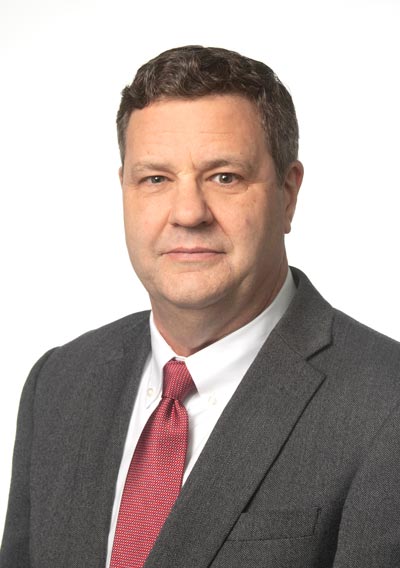
The changes have resulted in a higher workload on the workforce, “even those that are operating the equipment.” The COVID-19 pandemic has led to changes that are still affecting the industry. In addition, Onley said, “Global warming has had a tremendous impact on our industry, especially our energy industry.” International relations have also led to changes. After the invasion of Ukraine, levies were placed on Russian entities. Onley said House of Representatives Bill 1042 would prohibit imports of low-enriched uranium from the Russian Federation if passed. It has been sent to the U.S. Senate for consideration.
NFS has seen its share of changes. The company has been the sole provider of fuel for U.S. military aircraft carriers since the 1960s, he said. Since then, the company transitioned into a decontamination and demolition company. Then, in 2007, NFS transitioned into a company that converts decommissioned Cold War-era warheads into fuel for commercial and industrial reactors. How can companies deal with change? For one, Onley said “avoid change for change’s sake.” He also advised attendees of the eChemExpo to “take what you learn this week and take it back to the plant.” In addition, Onley said business leaders should have an understanding of how artificial intelligence and other technologies could impact companies. Onley also said employees should “understand your value,” and continuously learn.
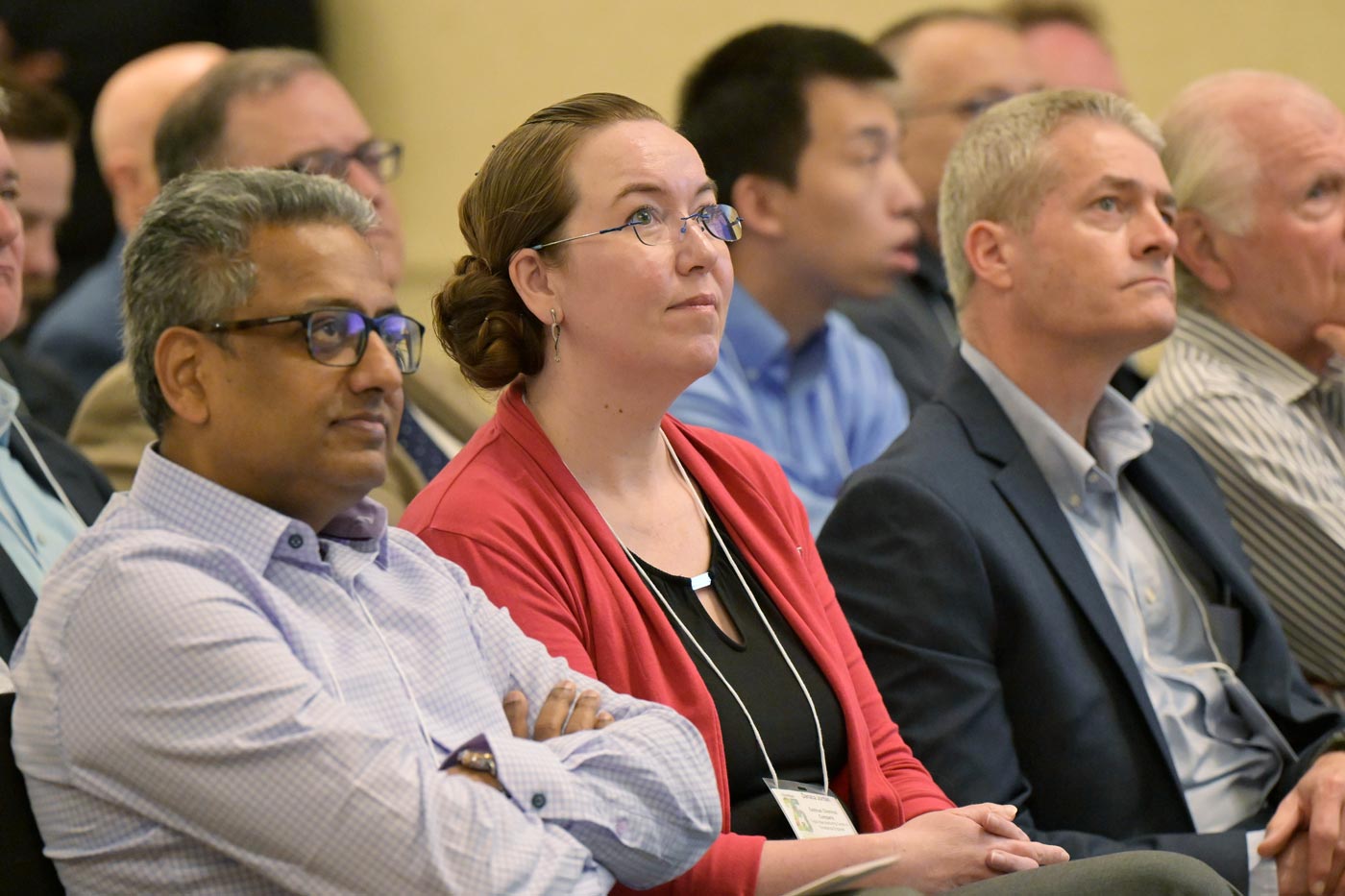
Scott Brandenburg, vice president of worldwide engineering and construction at Eastman Chemical Company, spoke about creating a culture of capability. A first-time eChemExpo attendee, said, “I’m very interested to learn more as we go through the day of what the culture or the pulse, what the interests are.” Brandenberg said he has had a lot of “good experiences, some challenging experiences, but always learning.” “That’s part of my DNA,” said Brandenburg, who was raised in a military family. “It’s why I come to work every day as an engineer. I like to solve problems. I like to learn. I like to work with people.”
Brandenburg said he has always been involved in a team environment and believes it is important to work together as a team to be successful. From an early age, Brandenburg said he always knew he wanted to be an engineer. Early on, he also enjoyed using ham radio to communicate with others and he “liked to experiment with electronics.” He quipped, “So you know, electronics, the problem that I tend to encounter was not always following the instructions when you’re that age, causing problems with the neighbor’s electric garage door openers, their organs, and terrorizing some of the neighbors.” Brandenburg, a civil engineer, shared a thought on rebuilding a plant that “blew up” due to a massive explosion. He said he learned a lot about safety, organizational management, and the strong rules necessary at a chemical plant.
“That’s what drives me every day from a safety standpoint,” he said. The most difficult challenge is not engineering or chemistry. “It’s really the people,” Brandenburg said. “And getting the people to have confidence in them again that things are okay. I didn’t take any classes in school on that.” Brandenburg has also served as a project manager on a variety of projects, and said it is important to recognized “that a million-dollar project is very different than a billion-dollar project.” Engineers should rely on others to solve problems, and learn to build communications and connections, he said. “So, it’s hard, it’s hard to build a team,” Brandenburg said. “And we have to find new ways to do that. I think the topic of trust and communication, cooperation, all these intrinsic human things that again, when you go to school for engineers, we don’t necessarily get, I don’t know, I didn’t take any psychology classes.” During his speech, Brandenburg also touched on sustainability, reliability, asset integrity, and technology.
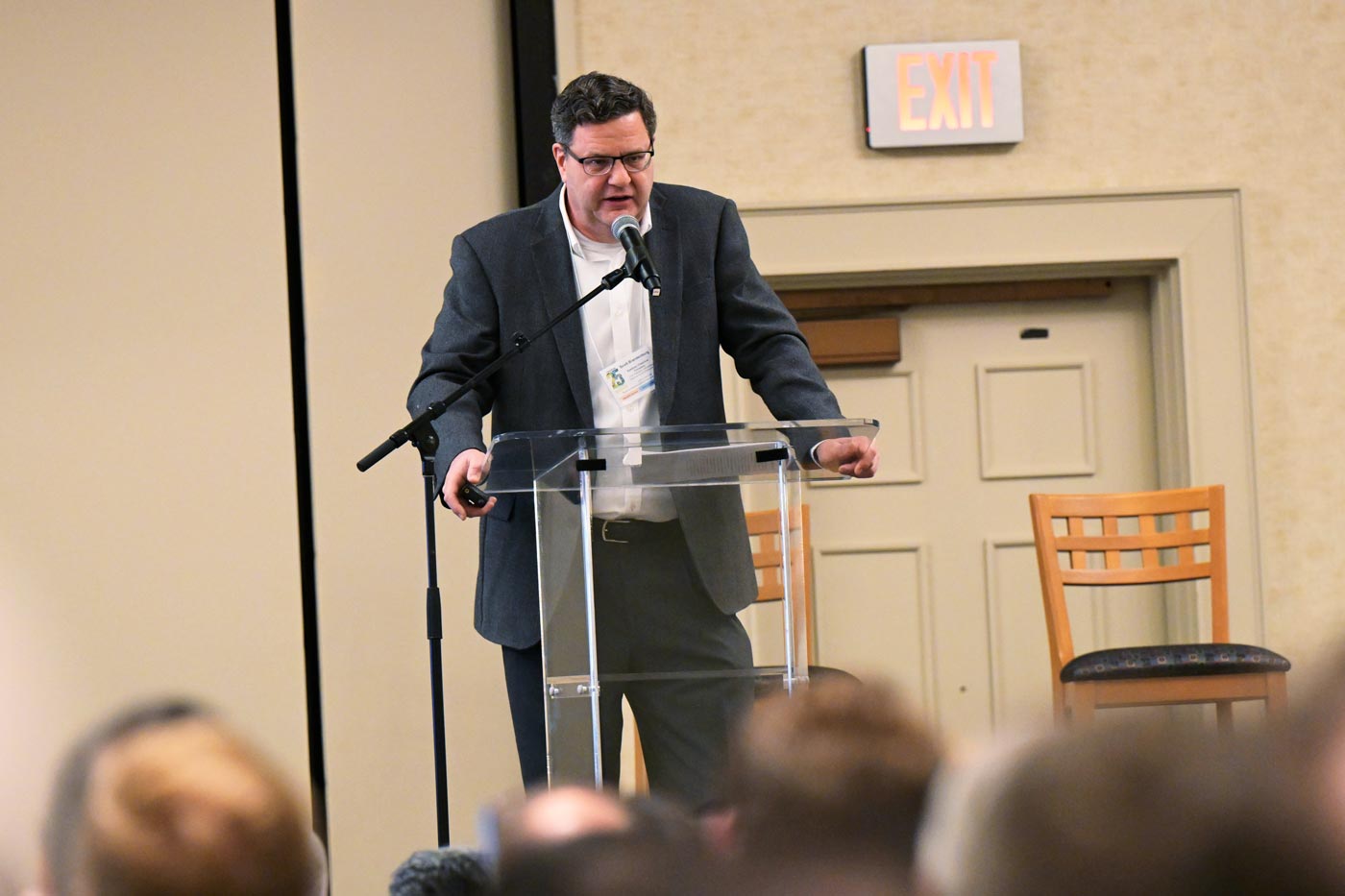
So, it's hard, it's hard to build a team. And we have to find new ways to do that. I think the topic of trust and communication, cooperation, all these intrinsic human things that again, when you go to school for engineers, we don't necessarily get, I don't know, I didn't take any psychology classes.
—Scott Brandenburg, VP, Worldwide Engineering & Construction, Eastman Chemical Company
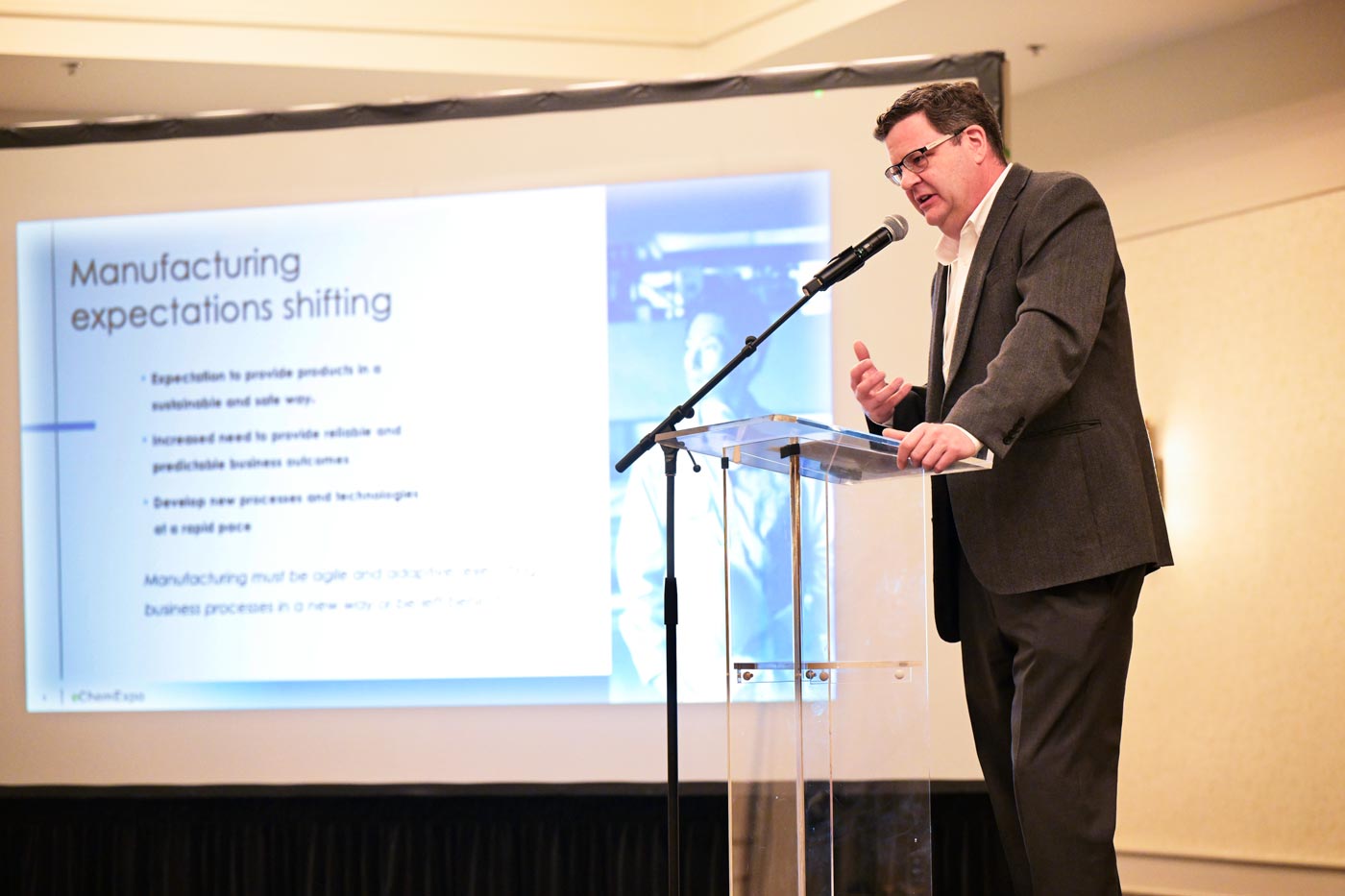
On sustainability, he mentioned Eastman’s plans to construct a plant in Longview, Texas, using a $375 million grant from the U.S. Department of Energy. “That has to do with sustainability and reducing our greenhouse gas emissions,” he said. Companies are now developing small nuclear plants, something Brandenburg said was unheard of five years ago. “Today, it’s something many chemical companies are pushing like crazy because they see that as a real and viable alternative to other things that have greenhouse gas emissions,” he said. It is important to keep things running, Brandenburg said. “It’s around making good business decisions on your pumps, and your compressors, and your blowers, and your towers, and your reactors, to the level of care and maintenance that you want,” Brandenburg said. “That [is] directly connected to the business performance you need out of the plant. So that’s the key thing that I think we overlook sometimes as engineers, that we think of asset integrity and reliability as being strictly a maintenance function.” Brandenburg briefly discussed the importance of artificial intelligence and a company’s need to adapt to the changing technologies.


